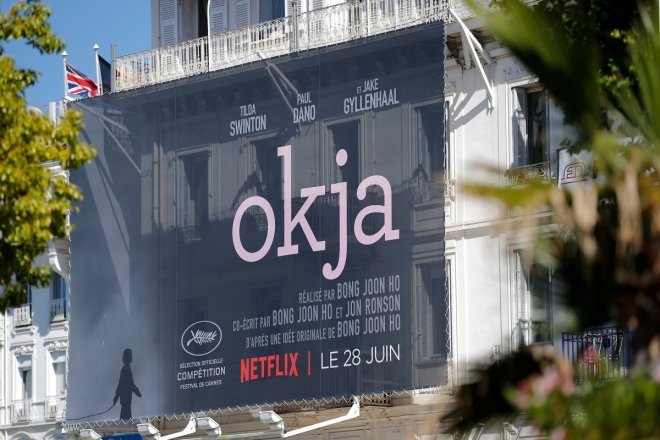
The director of the Netflix movie "Okja" has criticized the Cannes Film Festival for inviting the film for screening and then changing the rules.
At a press conference in Seoul for the film, director Bong Joon-ho said, ""(The festival) invited us and then caused a stir, making us embarrassed. They should have put the rules in place and then invited us. How can I as a filmmaker study local French laws while making films?" according to the Korea Herald.
"Okja" competed in Cannes' Palme d'Or this year but organizers later ruled that films that would not be shown in French theaters are not qualified for the plum.
The director was joined by Tilda Swinton, Steven Yeun and Ahn Seo-hyun at the press conference where they also talked about the screening of the movie in South Korea.
"I think 'Okja' contributed as an issue-maker (for the festival), seeing that Lars von Trier was not invited this year," Bong Joon-ho said.
The showing of "Okja" has been mired with boycotts as the three major theater chains have announced that they will not screen the film because of Netflix's decision to stream it on June 28, the first day of the film's opening in South Korea. Only about 70 theaters have agreed to show the film.
"I fully understand the position of Korean multiplex theaters. But I also think Netflix's principle of simultaneous streaming should be respected. 'Okja' has been made with the subscription fees of Netflix viewers and we cannot tell them to wait until after (the movie) has screened in theaters. I respect that," the director said.
The theater chains are insisting that Netflix should stream "Okja" three weeks after its opening date.
Bong Joon-ho blamed himself for the fiasco.
"I think (this situation) has arisen from my cinematic greed. Netflix hasn't tried to push through with theatrical releases (abroad) but Korea is a unique case. That is because of me. While filming with (cinematographer Darius Khondji), we wanted as many people as possible in the US, UK and Korea to be able to see the film on the big screen. It was my greed," he explained.


